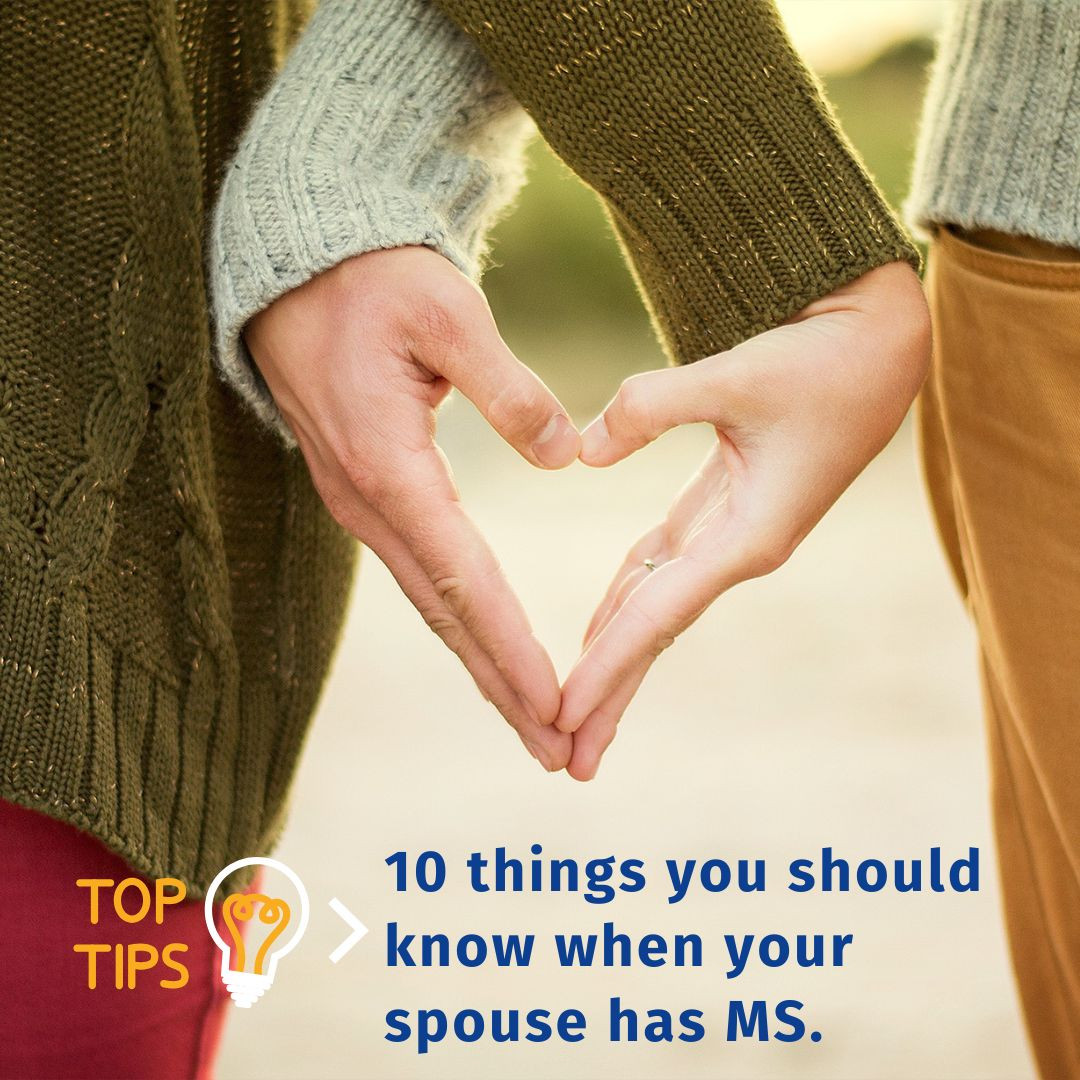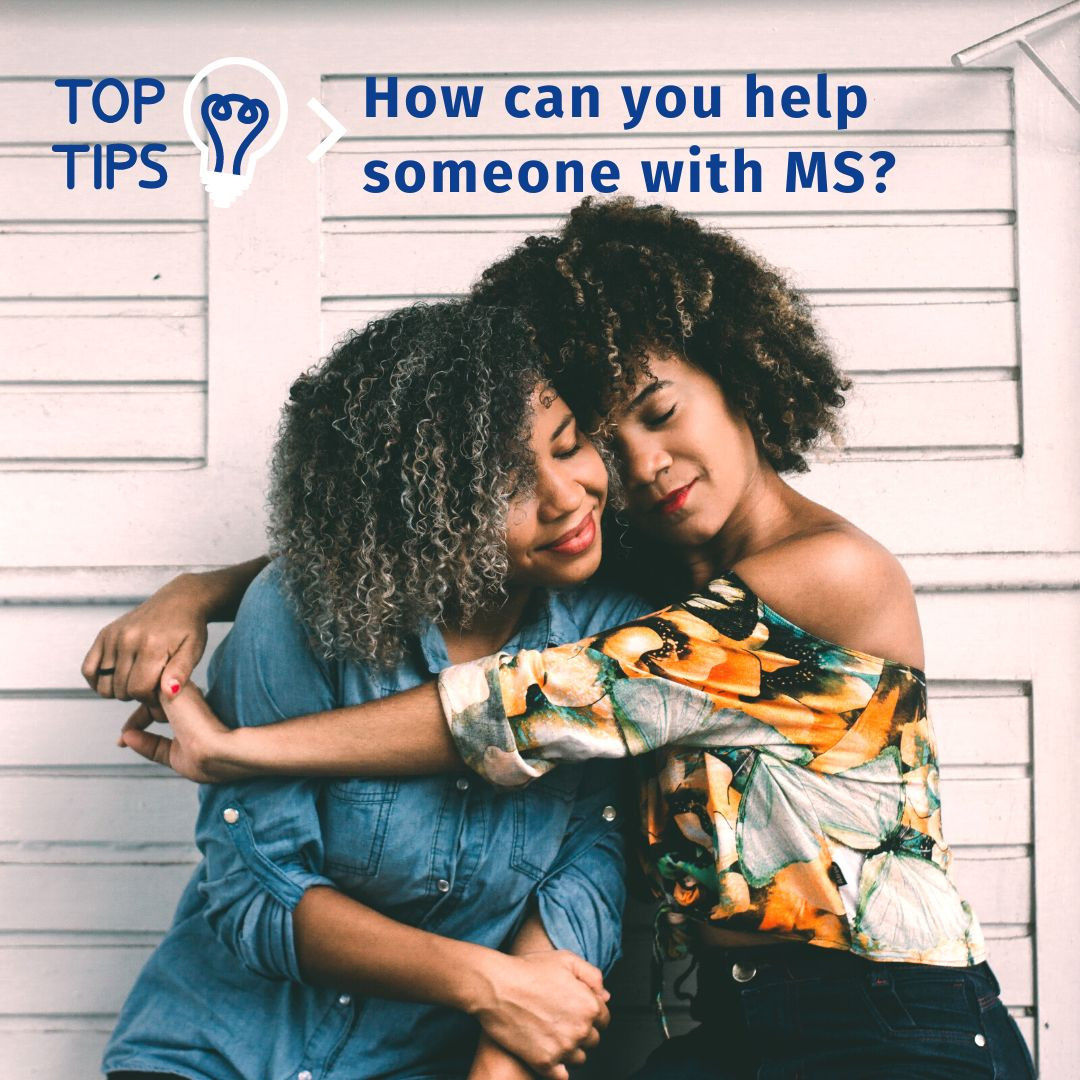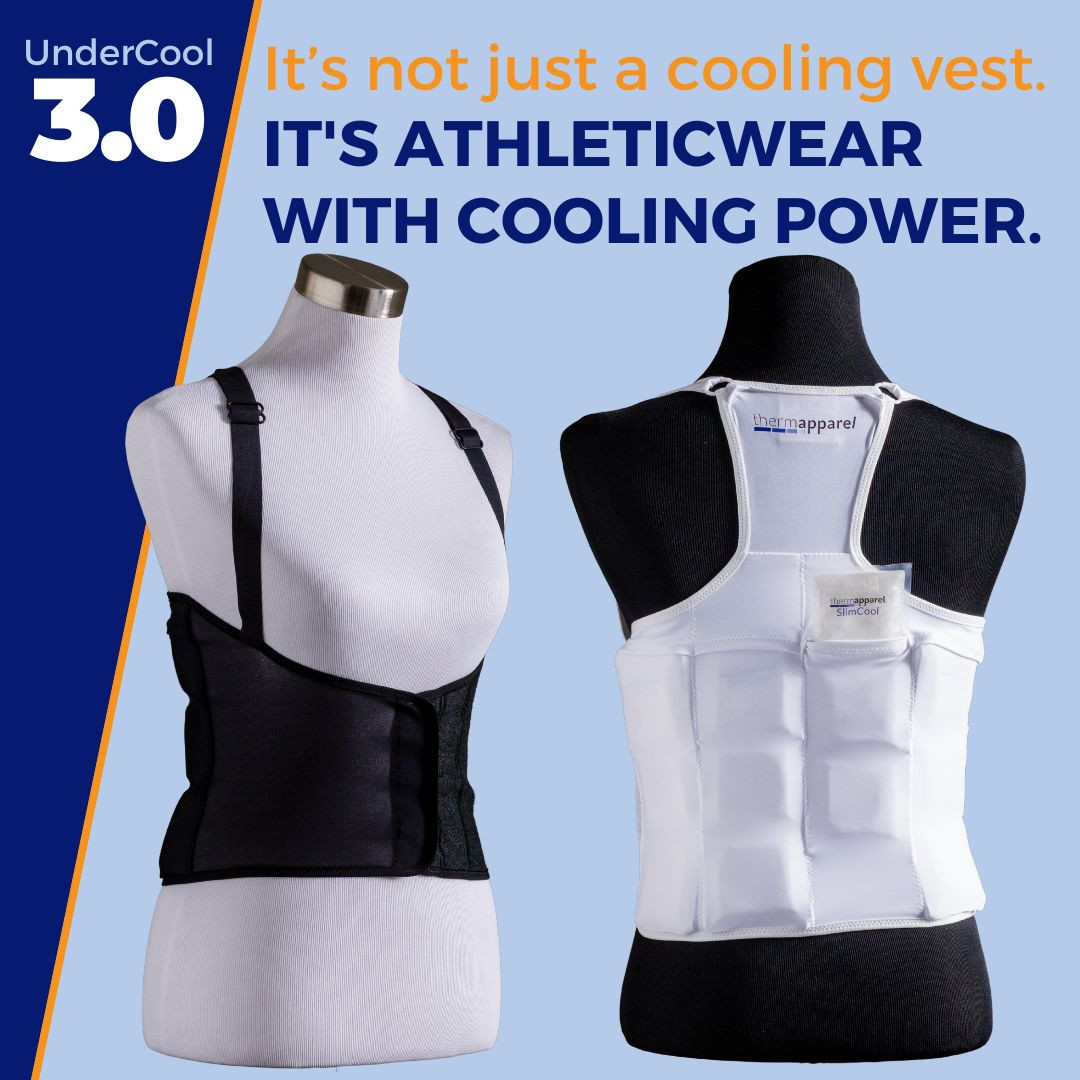March 3, 2023

If you or a loved one have recently been diagnosed with multiple sclerosis, you may not even know where to begin. Chances are you’ve never heard of MS and don’t know what this means for the rest of your life. You’re probably feeling overwhelmed, and even a little scared. You might also be relieved to finally know what’s causing all the strange symptoms you’ve been experiencing.
The good news is, no one has to face MS alone. We have compiled a list of good starting points from The National Multiple Sclerosis Society, The MS Foundation, and Dave Bexfield of ActiveMSers.
They are wonderful organizations and are there to provide the support, resources, and information you need to move your life forward. Many people find it helpful to start by gathering the facts. Learning as much as you can about MS can help you feel confident and in control of your health.
There are 4 sections to this blog.
National MS Society
Easily one of the biggest and most complete websites devoted to multiple sclerosis. This is a site you should explore. NMSS has information for the newly diagnosed, treatment options, webcasts, details on current research, and links to local chapters. Local chapters are ideal for finding MS resources in your area if you live in the US.
New to MS: Navigating Your Journey
Meets monthly on the 2nd Thursday
This virtual program will connect you with others new to MS and provide information about multiple sclerosis. You’ll be able to engage with other attendees, address questions to a healthcare professional and a volunteer living with MS, and share your own experiences.
New to Pediatric MS: Navigating Your Journey
Meets quarterly on the 4th Thursday
Connect and learn with others who are new to pediatric MS in this virtual program designed for preteens and teens ages 12-17 who live with MS, as well as their parents or legal guardians.
New to MS: Virtual Meetup
Meets monthly at 8 p.m. ET
Join this casual monthly meetup to connect with others who are new to MS and navigating their own journeys. Share information, learn coping strategies and build confidence in addressing the challenges of MS. Contact newtoms@nmss.org with any questions.
Connect with the National MS Society
You’re not alone. We are here to support you with information, online programs, and one-on-one conversations with professionals. Here are a few of the resources we offer:
- The Ask an MS Expert program series focuses on trending topics related to the MS community. Experts answer your questions and MS Navigators provide live support during each program.
- Employment resources: Watch our video series, learn about your rights and connect with other sources of support to help you make decisions about your future.
- The guide Knowledge Is Power will help you take charge of your MS. It provides an overview of symptoms, information on treatments, and answers to FAQs.
- Momentum: Momentum is the Society’s magazine, dedicated to providing information for and stories by people affected by MS. You might start with “In the Beginning,” an article about being newly diagnosed.
- MS Navigators are highly skilled, compassionate professionals that help connect you to the support you need.
- On-demand MS education: In addition to the New to MS program, we offer a number of online programs and educational opportunities.
The Society also offers resources specifically for children with MS, families affected by MS, Veterans, and those in the Black community and the Hispanic/Latinx community living with MS.
Connect with others
Take advantage of opportunities to meet others who understand life with MS through support groups, one-on-one peer counseling, and virtual programs.
- National MS Society Online Communities provide people affected by MS the support, information, and connections they need — when they need them. Find community no matter where you live in the world.
- MSFriends connects you with volunteers living with MS. MSFriends volunteers to complete a rigorous screening and training program and are focused on the needs of those who reach out for support.
- National MS Society support groups bring people with MS — or their families and care partners — together to lift each other up and share information and strategies. Find a group in your area.
- Black MS Experience Summit: Connect with others who understand the unique challenges of being Black with MS at the annual virtual summit. Recordings from past events are also available.
- Hispanic/Latinx MS Experience Summit: The Hispanic/Latinx MS Experience Summit is an interactive, virtual program in Spanish and English for people diagnosed with MS as well as their family and friends.
MS FOUNDATION
The MS Focus offers programming and support (including a toll-free helpline) to keep people with MS self-sufficient and their homes safe, while their educational programs heighten public awareness and promote understanding about the disease. Check out their info section on coping with multiple sclerosis. Better yet, their helpful (and free) booklets cover a ton of MS topics: pregnancy, CAM, nutrition, exercise, intimacy, cognition, and more.
What causes MS?
Who gets MS?
How many people have MS?
What are the warning signs of multiple sclerosis?
How is multiple sclerosis diagnosed?
What can I expect during testing for MS?
Is neuromyelitis optica (NMO, or Devic's disease) the same as MS?
What are the different types of MS?
If my tests are inconclusive, is it all in my head?
What should I expect if I'm diagnosed with MS?
Does MS cause pain?
Am I going to end up in a wheelchair?
Does MS shorten life expectancy?
Is multiple sclerosis fatal?
What can I do to fight my MS?
How is MS treated?
Is there a special MS diet?
Is it safe for me to have children if I have MS?
ActiveMSers
Founded in Albuquerque, NM, by Dave Bexfield (then 37) on March 2, 2006, ActiveMSers provides motivation and inspiration to those with multiple sclerosis to stay as active as possible—physically, intellectually, and socially—regardless of challenges. Today it is among the largest and longest-running personal MS websites on the internet (fully redesigned in 2020) and has aided hundreds of thousands affected by the disease and other chronic illnesses in more than 100 countries worldwide.
Dave's welcome series of emails is worth signing up for.
Check out Dave's Guides
The Best MS Resources
Helpful Disability Gear
Cooling Vest Reviews, Sun Safe Umbrellas, Other Cooling Gear
Specifically, read his review of the ThermApparel Cooling Vest (see below)
One frustrating fact of cooling vests is that they tend to be bulky, clunky, heavy, and most announce their presence like a 6-pound cyst growing out of your neck. ThermApparel is flipping the script and has designed a vest that is virtually completely hidden, weighs less than two pounds, and lasts longer than many of their larger, full-vest competitors. The UnderCool is ultra lightweight and stretchy, think sheer (and comfy) yoga pants, and comes in a range of sizes and two colors (back or white), cinching at the abdomen with Velcro. Perfect for sports, especially those that involve running. Cooling comes from four phase change (PCM) cooling packs that are inserted into the back of the garment—there is no cooling on the chest. We expected this to be a noticeable negative, but in our testing we still felt refreshed. And a huge side benefit of no cooling packs on the chest: there are no cooling packs on the chest so women (and men) of all chest sizes can wear this comfortably and stealthily. Expect the slim version to last 1-2 hours outdoors on a hot day, 2+ hours when worn indoors. The extended cooling packs add up to an extra hour of cooling power, and is a recommended upgrade. - Dave Bexfield, ActiveMSers
TOP TIPS
If you’ve been newly diagnosed with MS, these tips by By Jan Sheehan and Medically Reviewed by Jason Paul Chua, MD, PhD can help you manage the disease.
1. Learn as Much as Possible About MS
There are many myths and misconceptions about multiple sclerosis, and without the facts, your MS diagnosis can be scarier than necessary.
MS is a chronic inflammatory disease affecting the central nervous system. It occurs when the immune system causes inflammation that damages myelin — the protective insulation covering nerve fibers in the brain and spinal cord — as well as the nerve fibers themselves and the cells that make myelin, according to the NMSS.
This damage to the myelin or nerve fibers is what causes MS symptoms to occur.
But MS is very rarely fatal, notes the NMSS, and it is possible to live a fulfilling life with the disease. Your doctor can help you understand more about MS and stay up to date on new treatments and lifestyle tips, including the importance of a healthy diet, establishing and maintaining a healthy weight, exercising, and quitting smoking if you have MS.
2. Be Sure Your MS Diagnosis Is Definitive
Various strategies are used to make a diagnosis of MS, including a neurological exam, magnetic resonance imaging (MRI), spinal fluid analysis (spinal tap), and blood tests to rule out other conditions, according to the NMSS.
In some cases, getting a definitive MS diagnosis can take quite some time, partly because other causes of neurological symptoms must also be ruled out.
According to the latest criteria, your physician must do all the following to make an MS diagnosis:
- Find evidence of damage in two separate areas of the central nervous system
- Find evidence that the incidents of damage occurred at different points in time
- Rule out all other possible diseases and diagnoses
3. Understand That MS Symptoms Can Be Unpredictable
No two people have exactly the same MS symptoms, and you may have different symptoms from time to time, per the NMSS. Common MS symptoms include numbness or tingling, spasticity, vision problems, walking difficulties, weakness, slurred speech, fatigue, bladder dysfunction, cognitive changes, and more. But these symptoms can be unpredictable.
“Over the course of the disease, some MS symptoms will come and go, while others may be long-lasting,” Dr. Reder says.
4. Don’t Delay MS Treatment
Because permanent neurological damage can happen even in the earliest stages of MS, it’s important to start treatment as early as possible, notes the NMSS.
“All disease-modifying therapies for MS may reduce chances of the disease becoming progressive,” says Reder.
There are quite a few FDA-approved disease-modifying therapies for MS that have been found to reduce the number of relapses, slow the progression of disability, and limit new disease activity, according to the NMSS. These medications for MS include injectable medications, oral medications, and infused medications.
Other medications are also used to treat MS symptoms including bladder and bowel symptoms, depression, dizziness and vertigo, emotional changes, fatigue, itching, pain, sexual changes, spasticity, tremors, and walking (gait) difficulties.
5. Track Your MS Symptoms
Keeping a record of your MS symptoms and how you are feeling can help you update your doctor on your progress. Tracking your symptoms can also help you prepare a claim for disability benefits, if necessary, notes the NMSS. It can also help you stay on top of your symptoms if you’re experiencing memory problems or having trouble making connections, says Reder. The NMSS suggests using this form or something similar.
6. Avoid MS Symptom Triggers
Certain triggers, like stress, lack of sleep, infections, viruses, and hot baths or anything else that can lead to overheating, can cause a temporary worsening of MS symptoms, says Reder.
Drinking alcohol in excess is discouraged for people with MS because intoxication causes poor coordination and slurred speech, which can compound existing MS symptoms, he adds.
7. Find the Right Doctor for You
8. Consider Complementary and Alternative Medicine (CAM)
In addition to taking medication to control your MS symptoms, you may want to consider complementary and alternative treatments.
Research is beginning to support the role of some CAM treatments in comprehensive MS care, including vitamin D, exercise, acupuncture, and cooling strategies, notes the NMSS.
Most people who have MS use some form of CAM as part of their MS management plan, adds the NMSS.
Acupuncture may provide relief for some MS-related symptoms, including pain, spasticity, numbness and tingling, bladder problems, and depression, and a few small studies suggest that it may help with fatigue, pain, mood, and quality of life, per the NMSS.
9. Think About Whom You’ll Tell
You may be concerned that telling your employer that you have MS could affect your job security, employment options, and career path.
Before disclosing the disease at your workplace, learn about your rights under the Americans With Disabilities Act.
You’ll likely want to tell your closest family members and friends, particularly those who know you well enough to notice any changes. But you are not obligated to share news of your MS diagnosis with everyone in your life. Instead, pick the people who will be most supportive and helpful as you learn to live with the disease.
10. Don’t Give Up Hope
Depression is one of the most common symptoms of MS, according to the NMSS. If you're struggling with depression or other mood changes, ask your doctor for a referral to a mental health professional who understands the challenges you are facing with MS and can help.
Although there currently is no cure for MS, newer treatments can slow the progression of the disease, improving your quality of life and helping to prevent disability. And research is ongoing, with the goal of developing even better treatments in the near future that will stop progression and even restore functions and abilities that have been lost.
You Might Also Like...







